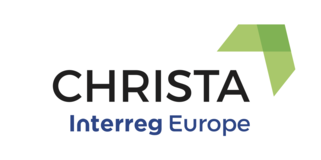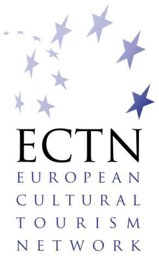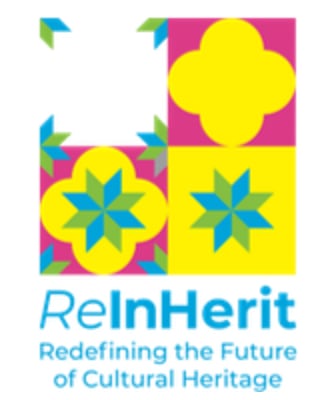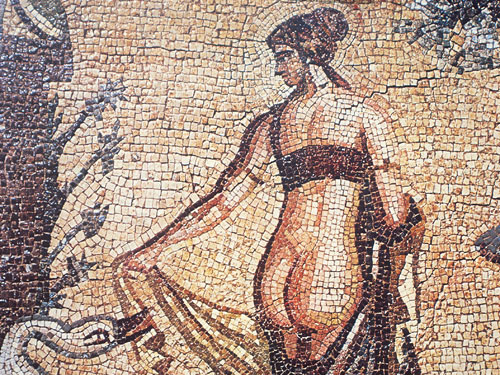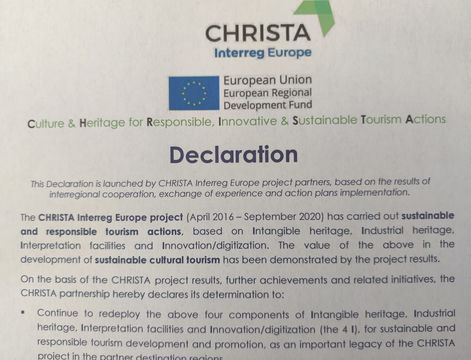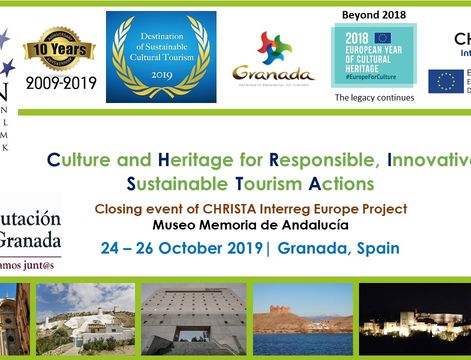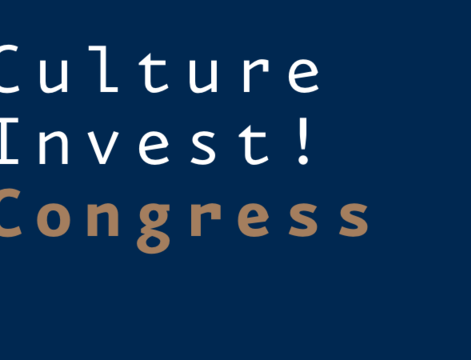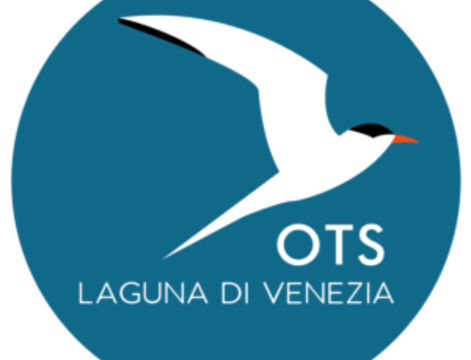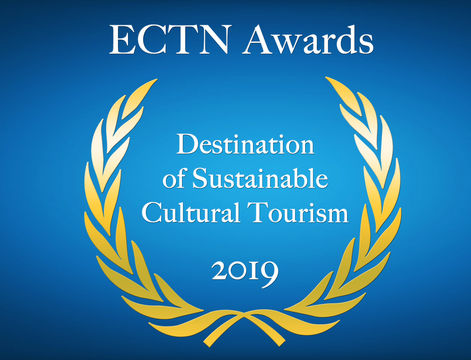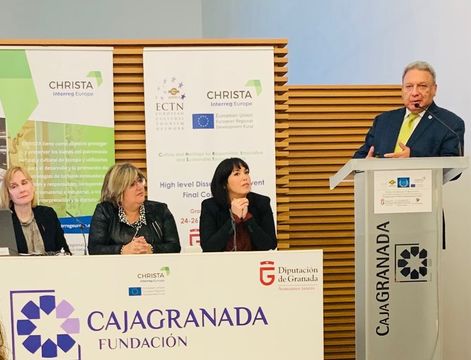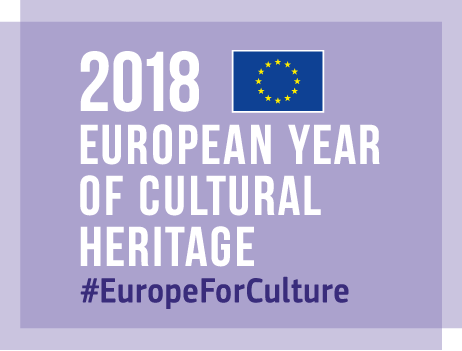Following the successful completion of the CHRISTA project, the CHRISTA partnership has launched the following Declaration:
Declaration
The CHRISTA Interreg Europe project (April 2016 – September 2020) has carried out sustainable and responsible tourism actions, based on Intangible heritage, Industrial heritage, Interpretation facilities and Innovation/digitization. The value of the above in the development of sustainable cultural tourism has been demonstrated by the project results.
On the basis of the CHRISTA project results, further achievements and related initiatives, the CHRISTA partnership hereby declares its determination to:
Continue to redeploy the above four components of Intangible heritage, Industrial heritage, Interpretation facilities and Innovation/digitization (the 4 I), for sustainable and responsible tourism development and promotion, as an important legacy of the CHRISTA project in the partner destination regions.
Ensure capitalisation the results and outputs of the CHRISTA project as a contribution for important improvements in relevant policy instruments, also related to EU co-funding programmes in the period 2021-2027 (Interreg Europe, Horizon Europe, Creative Europe).
Make the established procedures in the frame of CHRISTA project a permanent feature for close and effective stakeholder involvement in the partner tourist destinations.
Continue to participate in the European Heritage Days activities, following the successful participation during the CHRISTA project.
Introduce further enhancements for the visitor experience in the partner tourist destinations.
Maintain the CHRISTA partnership as a specialized Network of authorities, tourist boards, associations and institutes for sustainable and responsible tourism development innovations, facilitated by the CHRISTA advisory partner ECTN.
Support the legacy of the European Year of Cultural Heritage 2018, of which the CHRISTA project was a selected Interreg Europe project.
Adopt the definition of sustainable cultural tourism by the Open Method of Coordination Working Group – European Agenda for Culture (report published by the European Commission in November 2019, which includes references to CHRISTA project), viz:
Sustainable cultural tourism is the integrated management of cultural heritage and tourism activities in conjunction with the local community, creating social, environmental and economic benefits for all stakeholders in order to achieve tangible and intangible cultural heritage conservation and sustainable tourism development.
The CHRISTA Partnership, strongly calls upon tourist destination authorities in Europe:
To work together towards the development, implementation and operation of sustainable cultural tourism initiatives, based on Intangible heritage, Industrial heritage, Interpretation facilities and Innovation/digitization, with further related themes and initiatives.
To raise awareness regarding the above to national authorities, EU institutions, relevant European networks, competent pan-European and international organisations (such as European Travel Commission, UNESCO and UN World Tourism Organisation).
To coordinate and advance integrated cultural and tourism development policies that facilitate the introduction and operation of sustainable and smart tourism solutions.
To organize cultural tourism offers, so as to maximise social inclusion and to provide the majority visitors with integrated options, advanced information and smart services.
To give sustainable cultural tourism priority, as a means to promote lesser-known destinations and attract visitors to European destinations from the rest of the World.
Furthermore, the CHRISTA Partnership, strongly calls upon European Union Institutions:
To continue to formulate, promote, upgrade and support policies on sustainable cultural tourism development and related actions with adequate EU funding, including actions on Intangible heritage, Industrial heritage, Interpretation facilities and Innovation/digitization.
To incorporate Intangible heritage, Industrial heritage, Interpretation facilities and Innovation/digitization, in EU relevant initiatives, such as the European Capital of Culture, European Heritage Label, European Heritage Days, European Capital of Smart Tourism.
To promote the advantages of smart and sustainable cultural tourism in social and economic development and cohesion.
To facilitate the co-funding of cultural tourism initiatives, infrastructures, products and services with quality and smart options, on the basis of their sustainability, innovation, efficiency, cohesion and competitiveness benefits.
We encourage other local and regional authorities, tourist boards and associations, cultural and heritage organisations, universities and research institutes throughout Europe to adopt this Declaration and to join us in future, related initiatives for sustainable cultural tourism, in the European Union and beyond.

